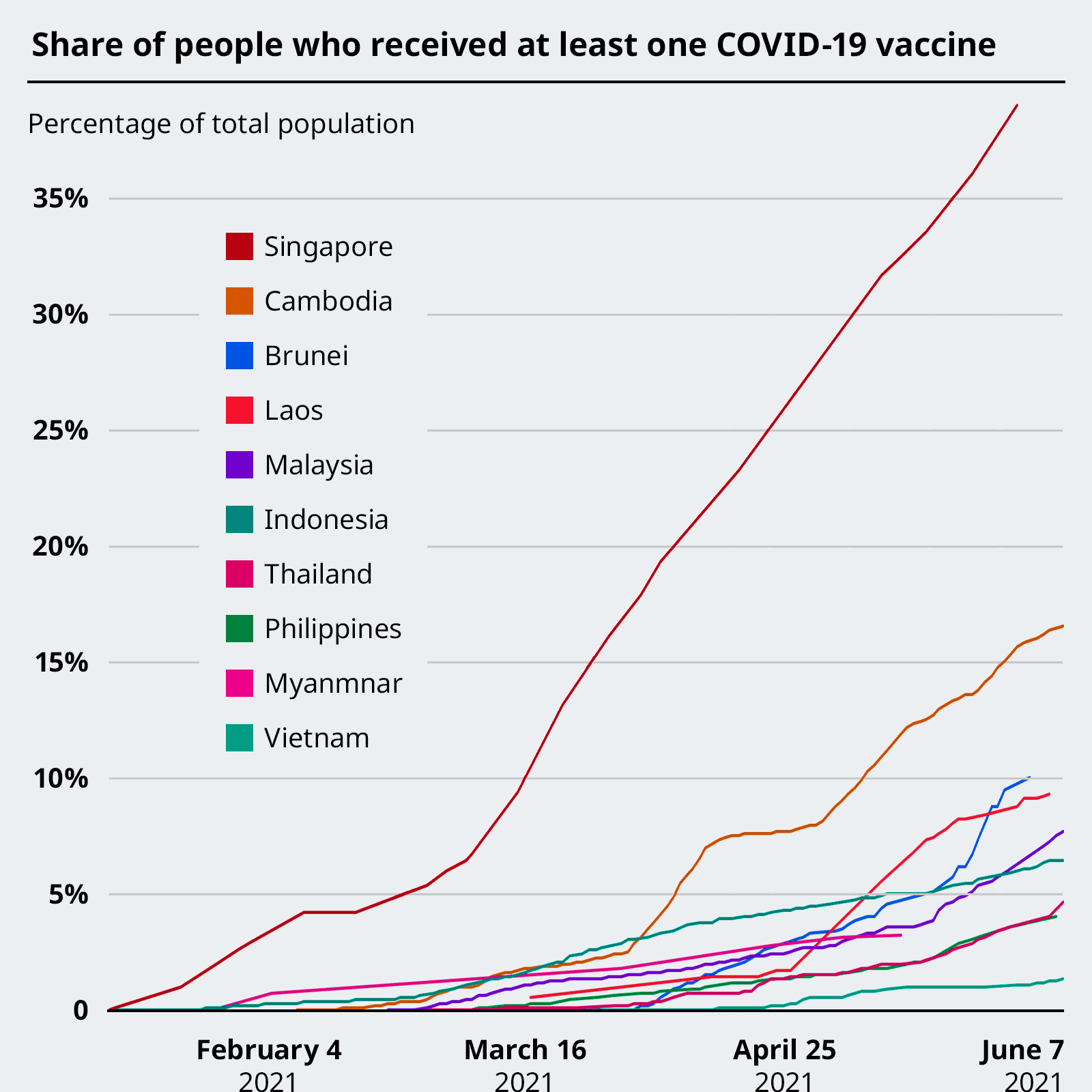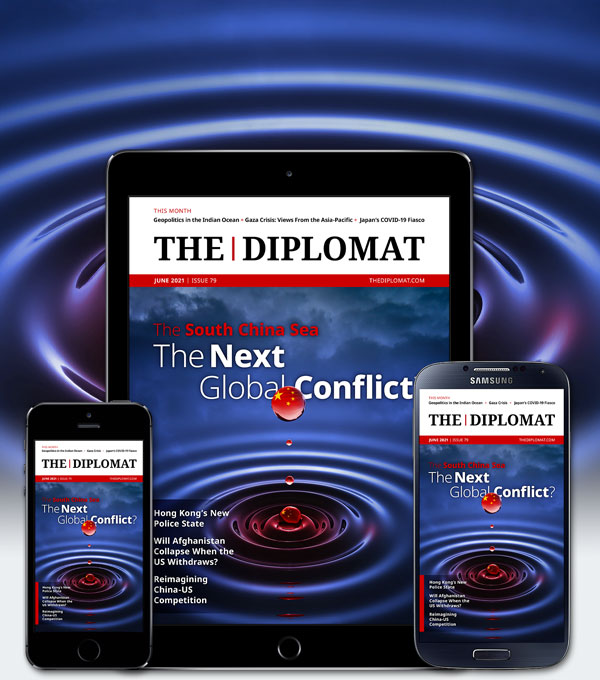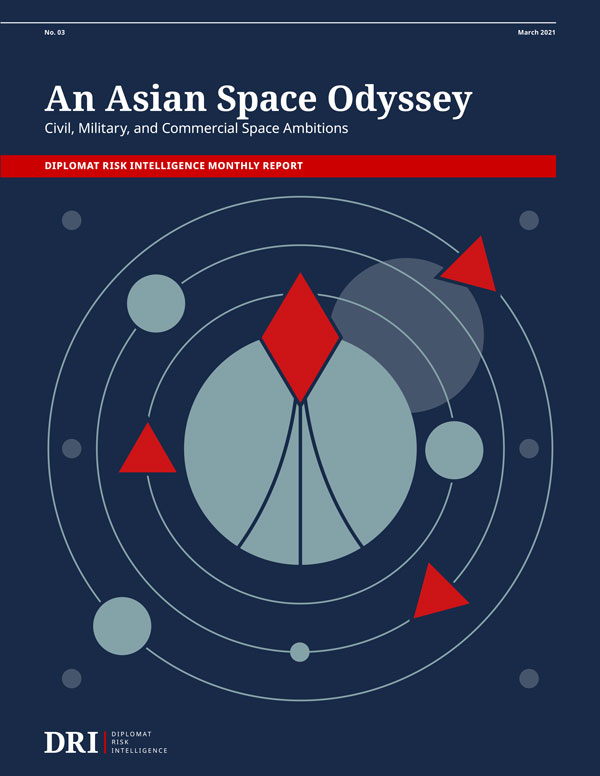| Welcome to the latest issue of Diplomat Brief. This week our top story looks at Malaysia’s race to vaccinate its people as a new wave of COVID-19 infections ravages the country. We also have an interview with former Indian Foreign Secretary Vijay Gokhale on the Tiananmen Square massacre of 1989, when he was posted in Beijing, and the lessons for today’s China policy. |
| Story of the week |  | SOCIETY Malaysia Aims to Speed Up COVID-19 Vaccination CampaignWhat Happened: As Malaysia sees a surge of COVID-19 infections, surpassing India in terms of infection rate per capita, the healthcare system is overloaded. Besides imposing a two-week lockdown that runs through June 14, the government is pinning its hopes on an expedited vaccine campaign, with the goal of reaching herd immunity by the end of 2021. Malaysia started vaccinations in February, but progress was slow, in part due to a lack of supply. In June, Malaysia topped 110,000 doses delivered per day, and it is aiming to nearly double that by the end of July. Our Focus: “Our country cannot afford to keep the lockdown much longer because it will have a very big damage on the economy, so the faster we can achieve herd immunity, the country can restart all the economic sectors again,” Dr. Seow Vei Ken, medical director of one of the private hospitals included in the National Immunization Program, told The Diplomat. The vaccine drive “is a way to strike a balance between life and livelihoods.” What Comes Next: Even as the rollout gains speed, there are concerns about the process. So far, Malaysia has relied on massive government vaccination facilities, causing some health experts to warn that vaccine centers themselves risk becoming “super-spreader” sites. Meanwhile, the online sign-up process has been plagued by bugs, and risks leaving out Malaysians with less access to and familiarity with digital technology. Read this story |
| Behind the News | INTERVIEW Vijay GokhaleVijay Gokhale, author of the recent book “Tiananmen Square, the Making of a Protest: A Diplomat Looks Back”: “If there was a misperception by the West it lay in the expectation that China might become more “normal” and thus amenable to Western influences, with engagement and economic progress… In the past decade it has become clearer that the Communist Party of China is unlikely to ‘Westernize,’ and now a policy adjustment is underway on both sides.” Read the interview |
| This Week in Asia | Northeast Asia China’s New Law Countering Foreign SanctionsDuring the annual session of the National People’s Congress this year, China raised the idea of crafting new legislation to “counter foreign sanctions,” part of a broader range of measures designed to increase the consequences of imposing such sanctions. The bill is expected to be formally passed by the NPC Standing Committee this week. The text of the new law will speak volumes about just how aggressive China will be in pushing back against what it calls “discriminatory measures” that “grossly interfere with China’s internal affairs.” Find out more | South Asia Sri Lanka and the Cargo Ship DisasterAn environmental catastrophe is unfolding in Sri Lanka, as the fire aboard a cargo ship continues to wreak havoc. The ship has already dumped untold tons of chemicals and plastic micro-pellets into the ocean; now the sinking vessel threatens to add an oil spill to the toxic mix. As Colombo scrambles to contain and clean up the mess, the country’s already-battered fishing and tourism industries are bracing for the worst. Find out more | Southeast Asia Australian PM to Visit SingaporeOn Thursday, Australia’s Prime Minister Scott Morrison will visit Singapore for one-on-one talks with Prime Minister Lee Hsien Loong. During the visit, which follows the special ASEAN-China foreign minister summit in Chongqing, the two leaders are expected to discuss recent tensions in the South China Sea and the establishment of a possible travel bubble between the two nations, before Morrison flies on to the G-7 meeting in the United Kingdom. Find out more | Central Asia Kazakhstan Pushes Back on Russian PressureA Russian official suggested last week that the Eurasian Economic Union (EAEU) was working on a “consolidated response” to sanctions by Western states on any of its members. Kazakhstan swiftly chimed in to take a stand against any effort to “politicize” the EAEU and firmly stated it would not participate in any such discussion. EAEU members Russia and Belarus have been subject to recent sanctions, sending both in search of support. They didn't find it in Nur-Sultan. Find out more |
|  |




